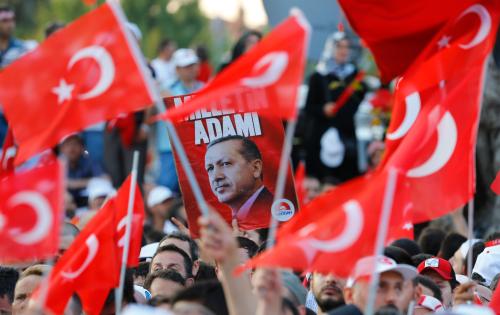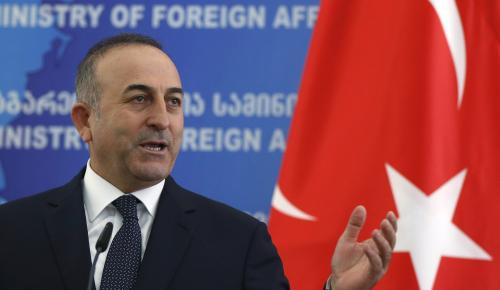

9:30 am EDT - 11:00 am EDT
Past Event
9:30 am - 11:00 am EDT
1775 Massachusetts Avenue NW
Washington, DC
20036
The failed coup in Turkey on July 15 to 16, organized by factions within the Turkish military in an attempt to overthrow the government of President Erdoğan, represents both a victory and a new trial for Turkish democracy. Although the Turkish citizenry brought the country back from the brink of anarchy and civil war, many analysts see last week’s events as a consequence of the political instability and discord that has been mounting for years as Erdoğan has consolidated powers, marginalized the opposition, and redefined Turkey’s democracy. How will the president react in the aftermath of the coup? Will the democratic backsliding intensify, or can the thwarted coup offer new opportunity for reconciling the deeply-polarized nation?
The upheaval and political instability in Turkey also holds significant implications for Turkey’s foreign policy and the fate of a neighboring region already in turmoil from the war in Syria and insecurity in Iraq. The West desperately needs a stable, democratic, and predictable partner in its NATO-ally Turkey to address the many challenges besetting the region and to fight the Islamic State (or ISIS). How will recent events affect regional stability and Turkey’s cooperation with the West on security issues, including the resettlement of Syrian refugees? What does the failed coup mean for the coalition against ISIS engagement in Syria?
On July 20, the Foreign Policy program (FP) at Brookings hosted a panel discussion to consider these questions and other domestic and international consequences of the coup attempt in Turkey. Brookings Senior Fellow and Director of the Center on the United States and Europe Fiona Hill introduced and moderated a wide-ranging conversation featuring FP Senior Fellows Shadi Hamid, Kemal Kirişci, Michael O’Hanlon, and Ömer Taşpınar.
After the discussion, the speakers took questions from the audience.
Related Content

Kemal Kirişci
July 16, 2016

Kemal Kirişci
July 11, 2016



Elaine Kamarck
February 26, 2026

William A. Galston, Elaine Kamarck
February 25, 2026

E.J. Dionne, Jr., Wendy Edelberg, Molly E. Reynolds, Melanie W. Sisson
February 12, 2026